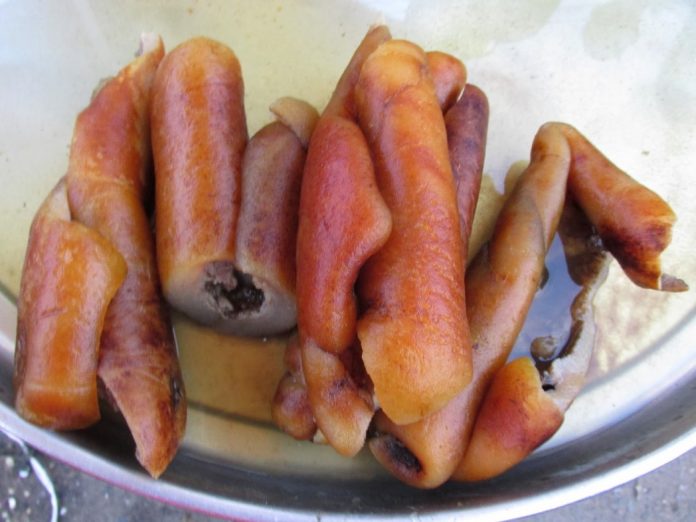The federal government says it is proposing legislation to ban the consumption of animal skin, locally known as ponmo, in the country to revive tanneries.
Muhammad Yakubu, director-general, Nigerian Institute of Leather and Science Technology (NILEST), Zaria, said this in Abuja on Sunday.
Yakubu said the litigation was necessary to revive the comatose leather industry in the country.
He said the habit of eating animal skin, which has no nutritional value, should be stopped to save the industry and boost the nation’s economy.
The director-general added that the institute, in collaboration with stakeholders in the industry, would approach the national assembly and state governments to bring out legislation banning “ponmo” consumption.
“To the best of my knowledge, Nigerians are the only people in the world that overvalue skin as food, after all, Ponmo has no nutritional value,” he said.
“At one point, there was a motion before the two chambers of the national assembly, it was debated but I don’t know how the matter was thrown away.”
According to him, the consumption of animal skin is partly responsible for the present comatose state of tanneries in Nigeria.
He also said the current National Leather Policy had addressed some fundamental problems of the sector.
“If we get our tanneries, our footwear and leather production working well in Nigeria, people will hardly get pomo to buy and eat,” Yakubu said.
“When implemented fully, it would turn around most of the comatose tanneries and ginger greater output in production.”
Yakubu appealed to stakeholders to support the legislation and the national leather policy to revive the sector.
NILEST was set up to promote leather production as provided in the Agricultural Research Institute Act of 1975. The institute conducts research the production and products of leather and the utilisation of local tanning materials in the country.






